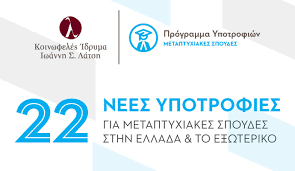Marco Veremis, Co-founder and Executive Chairman of the Board of Upstream and partner in Big Pi Ventures, wrote an article* for the Sunday edition of Kathimerini daily newspaper, about the challenges faced by innovative businesses in Greece today.
Any talk of innovation in Greece, in the midst of daily hardship, is likely to be considered incongruous and inconsistent with circumstances. References to the fourth industrial revolution, exponential and ground-breaking technologies, etc, remain indifferent to most. Our relationship to innovation is problematic because it has affected our lives only as an imported product. We are not accustomed to seeing our ideas turn into successful products that bring money and jobs. The lack of innovation in post-70s Greece is the main reason why our economy has failed. A western economy without innovation cannot export. We chose the easy way of importing with loans. At this stage, innovation is for us a necessity, not a luxury. Is it possible to create in Greece a critical mass of innovative technology companies that produce or use technology? Can we become a research and development base for foreign companies?
We are at a favorable conjuncture, past the first wave of companies that have benefited from large local markets and grown rapidly, such as Uber or Airbnb, and coming into the era of more sophisticated technologies. In this field, knowledge is more important than the size of the original market, and there is a shortage of employees with the appropriate training. Greece, according to the World Economic Forum, ranks 30th in the world in scientific research, fifth in higher education graduates in STEM (Science, Technology, Engineering and Mathematics), and second in university graduates as compared to our population in Europe (OECD data). To these figures, one may add the numbers of Greek students and researchers at some of the best universities in the world. We are a statistical anomaly, considering the size of the country. The almost absurd over-investment of Greek parents, when compared to their incomes, in the education of their children is ultimately our greatest asset.
It is an advantage that can determine our future. The problem is that we do not redeem this knowledge. We underperform in the creation of business patents and we score low when it comes to company innovation rates. Between 2006 and 2013, only 18% of Greek exports were medium and high-tech products (with a European average of 30% and 49% in Latvia and Poland). This is one of the biggest challenges for the country. Despite all the obstacles, we have witnessed several examples of Greek technology companies over the last ten years. The industry now has a larger size than traditional sectors, such as olive oil. These companies produce unique knowledge products and export them all over the world. They accept temporary failure, they are not afraid to take risks and they are group efforts, with shares allocated to all those who actually contribute to fast growth. Above all, they build on the knowledge of educated people, foster collaboration, and rapidly convert original ideas into marketable products. It is a community quite unlike the entrepreneurial stereotypes we were accustomed to in Greece. As for the cynics sniggering in the background, I shall repeat the words of John F. Kennedy that “We choose to go to the moon not because it is easy, but because it is difficult. Because this goal will help us organize our skills and our energy and will show our best. “
Read also via Greek News Agenda: R&D spending in Greece reached a record high in 2017; ΙΟΒΕ: Investment activity to grow 12-14% in 2019; 2nd Athens Innovation Festival; Strategy expert Yiorgos Mylonadis: “Greek entrepreneurs must adopt a global mindset”
*Translated for GNA by Magda Hatzopoulou
Photo ©Kathimerini














